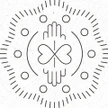4You Ski Team Engadin: Your Premier Ski School in the EngadineWelcome to 4You Ski Team Engadin , the Swiss ski school that transforms your passion for mountains and snow into unforgettable experiences for both professionals and amateurs. Located in the heart of the Engadine, our school offers a wide range of personalized courses tailored to the needs of every skier, from first descents to the most advanced levels. Our Mission The 4You Ski Team Engadin project was born from our shared passion for mountains and snow. Our goal is to provide comprehensive services in the snow world, from the first steps to the highest level, with passion and dedication to teach at our best. Our qualified team will help even the youngest to grow both technically and personally, experiencing a 360-degree adventure on the snow, which also means having fun while learning. Our love for snow led us to open our own school to convey all the emotions that only skiing and the Engadine can offer. 4You Ski Team Ski Courses for All Levels At 4You Ski Team Engadin, we believe that every skier has unique needs. That's why we offer a variety of courses designed to cater to every skill level and interest. Ski School for Beginners For those approaching skiing for the first time, our beginner courses provide a comprehensive and safe introduction to the world of alpine skiing. Our patient and qualified instructors will guide you through the basics, from equipment to technique, ensuring that each lesson is a step towards confidence and independence on the slopes. Advanced Ski School For skiers looking to refine their skills, our advanced courses offer intensive programs focused on technical improvement. Through personalized sessions, we work on specific aspects such as posture, speed control, and carving techniques, enabling you to tackle even the most challenging slopes with confidence. Competitive Ski School For those aspiring to compete, our competitive ski school offers specialized programs that combine technical and physical training. With experience in international events like the Alpine World Ski Championships and the Winter Olympics, our instructors will prepare you to excel in competitions, developing race strategies and enhancing your performance. 4You Ski Team Offered Disciplines Diversity is at the heart of our training offer. At 4You Ski Team Engadin, you can explore a range of disciplines that satisfy every passion for winter sports. • Alpine Skiing : From gentle slopes for beginners to technical descents for experts, we offer tailored courses that allow you to discover the wonders of alpine skiing in the Swiss Alps. • Cross-Country Skiing : Immerse yourself in the enchanting landscapes of the Engadine through cross-country trails that vary in difficulty and length, ideal for those seeking a tranquil experience or a physical challenge. Engadin • Snowboarding : Whether you're a novice or an experienced rider, our snowboarding courses will help you develop style and technique, exploring the various facets of this dynamic sport. • Freeride and Freestyle : For adventure and adrenaline enthusiasts, we offer specialized courses in freeride, to discover untouched terrains, and freestyle, to learn tricks and acrobatics safely. Ski School for Adults and Children At 4You Ski Team Engadin, we believe that skiing is an activity for all ages. Our programs are designed to meet the needs of both adults and children, ensuring a safe and enjoyable learning environment. • Adults : We offer personalized lessons that consider your previous experiences and goals, allowing you to progress at your own pace in a stimulating context. • Children : Our programs for the little ones combine play and learning, helping children develop technical and social skills, instilling in them a love for the mountains and skiing. Summer Ski School Passion for skiing knows no seasons. During the summer months, we organize glacier camps that offer the opportunity to continue training, improve skills, and experience the thrill of skiing in a unique setting. Discover the Engadine with Us The Engadine, also known as the "festival hall of the Alps," is a mountain valley in the canton of Graubünden, Switzerland. Here, sport and entertainment merge into one, offering unforgettable experiences to all, not just ski lovers. 4You Ski Team Join the 4You Ski Team Engadin and experience the passion for skiing in a professional and welcoming environment. Contact us today to discover the course that best suits your needs and start your adventure on the Engadine slopes.















